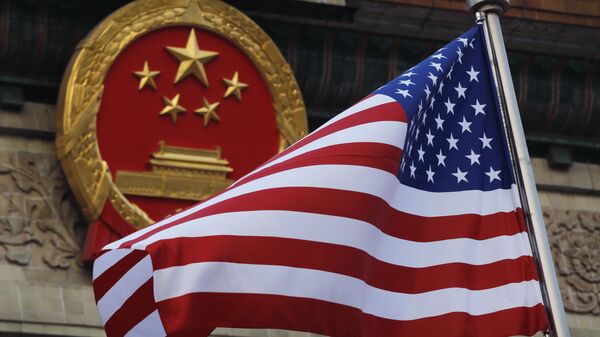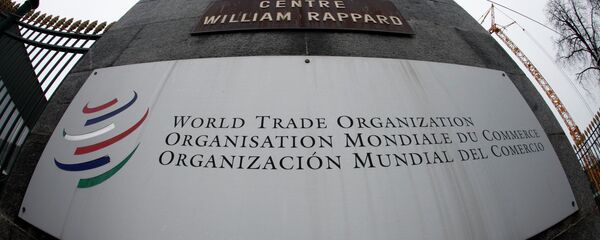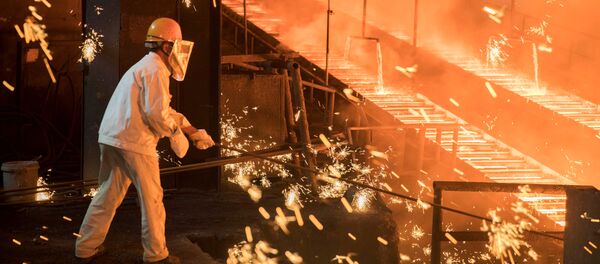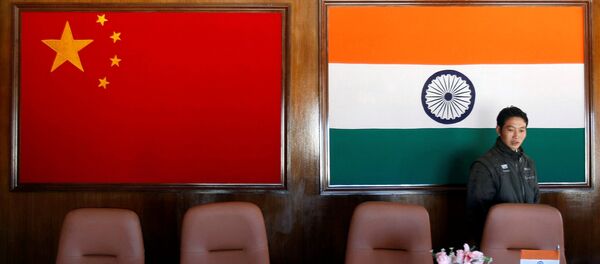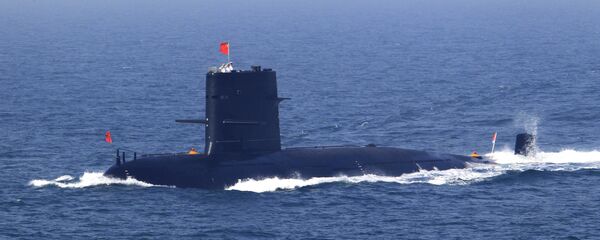We can say that October has been the worst month for Asian stock markets in recent years. The CSI 300 Index has fallen by 6% this month, and by a third since Lee Wang Hwi from Ajou University has told Sputnik that China's financial instability can also affect other Asian countries.
"The likelihood of a third Asian economic crisis is rather high. China is the most vulnerable country at the moment. Last year, China struggled to reduce its debt. But with the start of the trade war, after August of this year, the government has abandoned its debt reduction policy to avoid economic stagnation," the expert noted.
Lee Wang Hwi also stated that the "unprecedented frequency of financial conferences this year shows that the Chinese government considers financial market instability a really acute issue."
The expert went to note that "even if China doesn't plunge into a serious crisis, those economies that are heavily dependent on China may be hit hard, and the region will once again experience a financial crisis, like in 1997. If China's financial instability continues to grow, it's likely to cause serious problems in South Korea, Taiwan, Hong Kong and other regions."
As of late 2017, the average ratio of Chinese household debt to their actual income was 87%. While this is not 100% as we saw in the US financial crisis of 2008, the gap is rapidly decreasing.
Last year, Chinese corporate debt set a record of 166% of the GDP; that is three times higher than Germany, two times higher than the US, and one-third higher than Japan.
The Chinese authorities are well aware of the risk — the greater the leverage, the more tragic results we can see with a slighter decline in the market. Therefore, the government has taken resolute measures to limit the amount of loans on the market.
The Chinese business community responded favorably to this, and currently, 11% (about $632 billion) of the market capitalization is mortgaged. However, with the financial market's decline, more and more companies are facing margin calls.
READ MORE: Brexit, Trade War, Oil Prices: Not Good News for the Global Economy — Scholar
According to the "debt-for-equity" loan conditions, if a company's market value falls to a certain level, the lender will require additional funds to provide extra collateral. But these companies have a liquidity gap, so they aren't able to meet this requirement.
In this case, the lender begins selling off the shares of the company and monetizing the debt. If this process is scaled up, then the financial market will plummet and a financial crisis could occur.
That makes foreign experts quite concerned about China's financial market. However, Li Kai, associate professor at Shanxi University of Finance and Economics has told Sputnik that there is no need to worry about this, and the country won't let such a thing happen.
"I believe that the likelihood of a financial crisis in Asia is very low; it's almost impossible. As the leader of Asian economic development, China has indeed encountered some difficulties after the start of the trade war, mainly on the stock market and exchange rate. The Central Bank has taken positive measures to stabilize the exchange rate," the scholar said.
In addition, Li Kai noted that the stock market fell sharply some time ago, but "following recent comments by Central Bank officials, there have been some signs of stabilization."
In general, the scholar stated that the Chinese government's economic regulation and control capabilities are "very strong, and there is a systematic approach to combating the economic recession. So, the economic situation is still relatively optimistic."
READ MORE: Trump Trade Wars Cause Instability in Markets He Inflates for Political Points
Several Chinese regulatory agencies are also engaged in comforting the stock market. Liu Shiyu, Chairman of the China Securities Regulatory Commission, has promised to deepen capital market reform.
In addition, the CSRC has also required lending institutions to understand the situation, not to sell mortgaged shares, and not to freeze the accounts of these companies.
The Central Bank has also pledged to support private companies to obtain financing through the issuance of stocks and the increase of the refinancing quota by 150 billion yuan for small businesses; it has also called for private equity funds to help companies overcome temporary financial difficulties.
Local governments have also started supporting the market value of the companies. Shenzhen authorities have announced plans to provide 30 companies trading on the local stock exchange with 15 billion yuan.
The authorities of Shunde, which is a manufacturing hub in Guangdong Province, have also announced plans to create a fund to support the companies. Beijing has as well decided to create a 10-billion fund to help tech companies to support their share prices.
Japan's Topix fell by 10%; South Korea's Kospi Composite fell by 12%, which is the worst value since 2011. Taiwan's Taiex fell by 12% which is at least a 10-year record.
China's trading partners are also going to feel the pressure of the financial crisis. According to Christopher Bovis, professor at the University of Hull in the United Kingdom, considering China's economic and trade scale and its role in the world supply chain, a new global crisis is entirely possible.
READ MORE: Dow Sinks 800 Points as Tech Stocks Slide
The scholar noted that "China would easily take on any potential full-fledged war between the US and itself because they have the mighty funds; they also have a currency to participate in international monetary systems in order to avoid any side effects of the trade war, the imposition of tax."
He also stressed that "the other economies, the emerging economies, don't have that possibility. In fact, they have debt. China has debt, but it has a tremendous amount of liquidity; it can fight back and it can win back. It's extremely likely that we'll have an escalation of the trade war between the United States and China, and that would lead to a serious crisis because currently, the world doesn't have the institutional infrastructure to deal with [the] current wars."
Md Hamid Uddin, a PhD-Associate Professor of Finance- Director, Ph.D. Program, Taylor’s Business School, Taylor’s University, Malaysia, told Sputnik that there is worry of another financial crisis as global debt has swelled over the last decade since the global crisis of 2008.
“The global debt has climbed to $247 trillion in the first quarter of 2018, up 43% from the level of 2008. However, the GDP posted about 37% growth over the same period. The reasons perhaps major economies like the U.S., European Countries, Japan, and China embarked on massive stimulus packages following the last financial crisis as well as low-interest rates might have encouraged excess borrowings.”
However, Sachin Chaturvedi, Director General, Research and Information System for Developing Countries (RIS), doesn't agree with the assumption that crisis in China could trigger the global economic crisis and stresses that "any conjecture of an impending financial crisis leading from debt default in China's provinces might have strong local impact in China. However, it is unlikely at this stage to expect that the Chinese debt problem would escalate to an Asia-wide debt or financial crisis."
He also mentioned that India's Central Bank hails the current state of global economy as "uncertain, but not alarming."
The professor noted further that the Monetary Policy Committee of the Reserve bank of India in its meeting held on October 3-5, 2018, outlined that "the global economy exhibited considerable resilience despite growing trade tensions among major trading nations."
We've already seen several financial crises, but they usually stemmed from certain economic factors. The current situation is that the crisis involves political factors. Therefore, it remains to be seen how the trade confrontation between the two major powers will affect the rest of the world.
Views and opinions expressed in this article are those of the speakers and do not necessarily reflect those of Sputnik.
